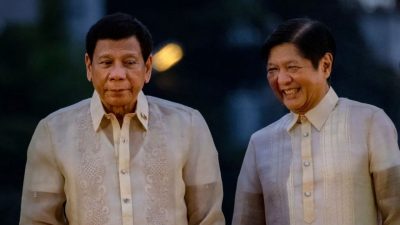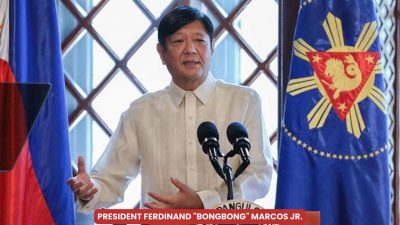By Junex Doronio
MANILA — Renowned social critic Randy David, recognized for his rationality and objectivity, has cast uncertainty regarding whether President Ferdinand “Bongbong” Marcos Jr. or his cousin, House Speaker Ferdinand Martin G. Romualdez, was involved in the “EDSA-pwera” commercial promoting charter change (Cha-Cha), which debuted on primetime television last week in Manila.
“I doubt that President Marcos or his first cousin Speaker Martin Romualdez would wish to premise a productive discussion on Charter change on the supposed failures of Edsa. They are back in power; the last thing they need is to open old wounds and awaken dormant animosities. That advertisement does them a disservice; I don’t believe they’re behind it,” David wrote in his January 14 column for the Philippine Daily Inquirer.
The former chairman of the Bukluran sa Ikauunlad ng Sosyalistang Isip at Gawa (BISIG) who is also a respected long-time sociology professor at the University of the Philippines Diliman noted that Marcos Jr. “knew better than to demean Edsa in his carefully planned route to the presidency.”
BISIG was a loose socialist coalition in the late ’80s composed of former national democrats, ex-social democrats, and remnants of the pro-Soviet 1930 Partido Komunista ng Pilipinas (PKP).
It was disbanded sometime in the ’90s, with then former soc-dem BISIG Secretary General Ronald Llamas forming the Akbayan party-list.
David pointed out that the commercial only sparked discussions on the significance of the 1986 People Power Revolution, instead of making new arguments on why the 1987 Constitution should be amended.
“Why would he (PBBM) risk antagonizing them by blaming the post-Marcos Constitution for the country’s supposed stagnation?” David asked.
David further noted that Marcos Jr. would know better than to antagonize those who still find the People Power Revolution significant considering his efforts to differentiate himself from former President Rodrigo Roa Duterte.
He stressed that any attempt for Cha-Cha —particularly the proposed shift to a parliamentary system— should be premised on the desire to improve people’s lives instead of personal motivations.
“Whatever the justification for the shift may be, it should never be to merely accommodate the ambitions of anyone who is not electable nationally. By the same token, opposition to a parliamentary shift must not be motivated by a mere wish to ensure that a ‘strong’ presumptive candidate is not denied the presidency in 2028,” David concluded.
(el Amigo/MNM)







